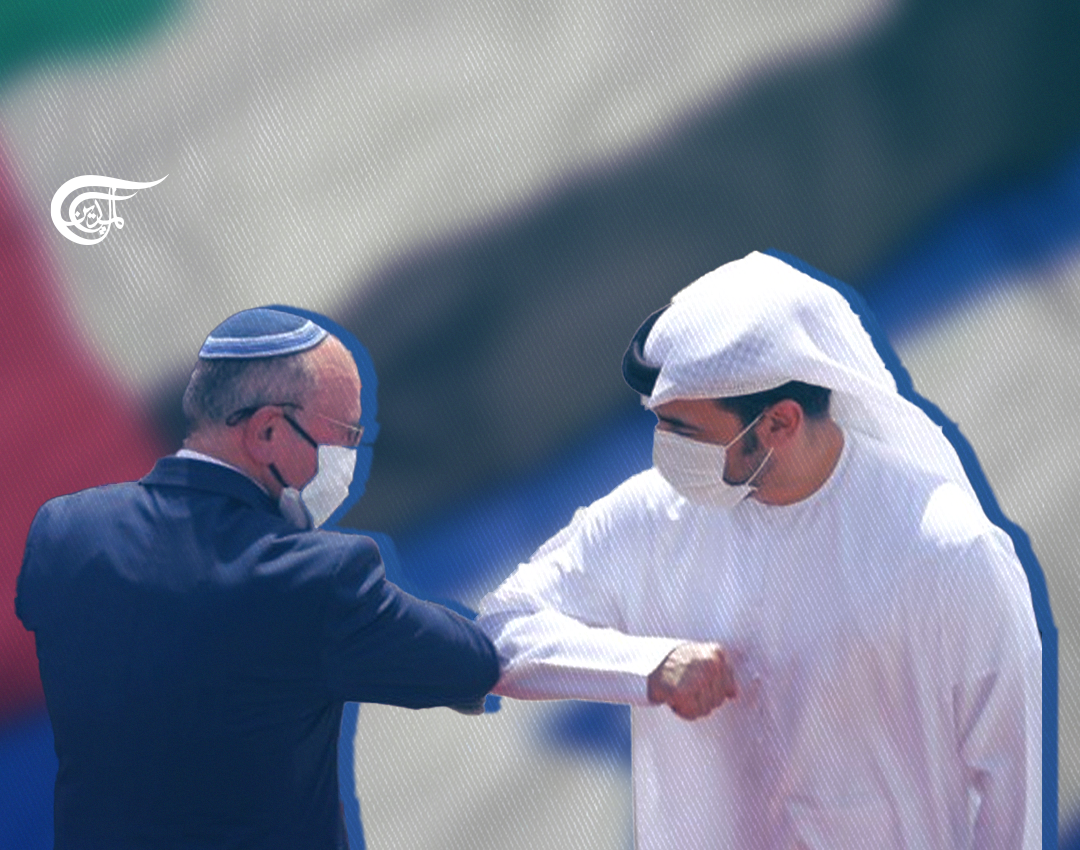Arab-Israeli Normalization Continues an Old and Failing Strategy for Western Hegemony
Inauguration of Israeli Embassy in Abu Dhabi Brings West's 'Periphery Policy' into the open.
In his new capacity as foreign minister and ‘prime minister-in-waiting,’ Yair Lapid used the opening of the Israeli embassy in Abu Dhabi to declare, “We aren’t going anywhere. We are here to stay”.
As if to confirm and intensify the process of normalization with regional Arab states, Mr. Lapid’s flight path to the UAE cut directly across Saudi Arabia. With Riyadh’s relations with Tel Aviv becoming ever less covert, its widely anticipated diplomatic recognition would be the most significant since the ‘Abraham Accords’ sponsored by former US President Trump.
By now the relations between the “Israeli state” and a growing list of its Arab counterparts are such common knowledge as to hardly bear commenting on. It has, however, been misleadingly touted in the Western mainstream as a new development, something borne of the heightened tensions over Iran’s nuclear program from the early 2000s.
The ‘Periphery Doctrine’ and the ‘Safari Club’
Almost from its inception, the United States and Britain had sought a role for “Israel” in the security architecture of the post-World War II Middle East state-system. Open alliance would arouse the anger of the Arab publics, making the partnership of their states with Western powers politically untenable.
While the newly minted oil-states were to be kept divided and weak, so as to ensure Euro-American access to the wealth concentrated in their territories, it was necessary to enlist the services of the regional non-Arab countries to both pre-empt the threat of pan-Arab movements and to keep the oil-producing regimes in power.
That “Israel” was at the forefront of these regional gendarmes is a given, but it shared its role as a Western enforcer state with Turkey, Pakistan, Ethiopia, and pre-Revolutionary Iran in what was ultimately dubbed the ‘Periphery Doctrine.’
This tiered system of Western military control matured under the Nixon administration, especially as Britain’s imperial reach retreated from east of the Suez Canal.
It was largely the fall of the Pahlavi dynasty in Iran in 1979 that brought the scale of these alignments to light, as veteran Egyptian journalist Mohammad Heikal was granted access to documents detailing the former regime’s role in the ‘Safari Club.’
Formed in 1976 in Kenya, the Safari Club was a formal alliance of the Iranian, Saudi, Egyptian, Moroccan, and Pakistani intelligence services under the auspices of the Americans, British and French, in close coordination with Mossad.
The primary focus of the alliance was ‘combating Communism’ (in other words, anti-Western nationalism) in Africa and Western Asia. Among its achievements were the 1977 intervention in Zaire (DRC), the creation of a global money-laundering infrastructure through Pakistan’s Bank of Credit and Commerce International, and luring the Soviet Union into the intractable quagmire of Afghanistan. It also reportedly was instrumental in the Egyptian-Israeli rapprochement which culminated in the 1979 peace treaty and normalization of relations.
As was customary for the time, the universally applied pretext for these actions was ‘anti-Communism,’ a justification which was dead and buried by the end of 1991 with the USSR’s collapse.
Fortunately enough, it is from the mouths of Israeli officials themselves that we can learn the true function of these clandestine alliances. In the early 1990s, Shlomo Gazit, the director of Israeli Military Intelligence from 1974-1978 took the opportunity to assert that the Soviet Union’s disappearance did not change the role “Israel” would play in Western military and geopolitical doctrine. It was to promote 'stability' and provide intelligence and security services to the oil-producing states, while crushing nascent nationalist movements that might threaten Western control of the region's energy resources.
Emergence of the ‘Resistance Axis’
The loss of the Shah’s Iran to the Islamic Revolution in 1979 destabilized this pro-Western alliance system, with Tehran severing both its relations with Tel Aviv and its commitment to the US’ regional objectives. It also set in motion the rise of local nationalist movements that challenged not only American and Israeli hegemony, but the post-colonial state-system of the region itself. Today these movements have coalesced into what is termed the ‘Axis of Resistance.’
Much of US policy over the last 40 years can be interpreted as attempts to compensate for this setback, from the alliance with Saddam Hussein’s Iraq in the 1980s to its outright conquest in 2003, to NATO’s backing of extremist militants in Syria, and full-backing to the ostensibly ‘Saudi-led’ war and blockade of Yemen. The net effect of US interventionism, as we now well know, has been to turbo-charge regional movements opposed to Western military and political dominance and the passive role assigned to the Middle East in the globalized economy.
The oil-states themselves are increasingly having to assume an active role in enforcing the regional Pax Americana, as evidenced by the Saudis’ conduct under Crown Prince Mohammad Bin Salman, but it is clearly a task to which they are ill-suited.
The Saudi-Coalition’s disastrous assault on Yemen has all but ensured Ansar Allah’s future dominance of the southern Arabian Peninsula and will likely embolden them to push the Saudi regime to its breaking point. A near decade of fourth-generation war in Syria has only strengthened the regional posture of Hezbollah and guaranteed that “Israel’s” next attempt to root out the Lebanese resistance movement will confront it with a theatre of operations covering almost all of the Levant. Meanwhile in Palestine, with the PLO’s grip on power increasingly slipping, a wholesale rejection of the Oslo Process will see “Israel” and its ‘Jewish character’ under unprecedented pressure with global opinion turned decisively against it.
It was exactly for this reason that the ‘Periphery Doctrine’ was first developed. With the United States now trying to pivot militarily to the Asia-Pacific and incapable of directly occupying the region as a whole, it will be forced to continue delegating its regional hegemony to local proxies, hence the ever-tightening nexus between its non-Arab allies and the leading energy exporters.
As the Periphery Doctrine increasingly fails to curb independent nationalist movements, the Western powers at the top of this hierarchy will be forced to rely solely on their own military force to keep their grip on the region. It will be, but at that point, they will have lost it.

 Samuel Geddes
Samuel Geddes
 6 Min Read
6 Min Read












